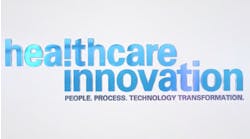Partners HealthCare and GE Healthcare have announced a 10-year collaboration to develop “deep learning” technology across the continuum of care.
To execute the partnership, Partners created a new Massachusetts General Hospital and Brigham and Women’s Hospital Center for Clinical Data Science. The center will feature co-located, multidisciplinary teams with broad access to data, computational infrastructure and clinical expertise.
Initially, GE Healthcare and Partners will focus on the development of applications aimed to improve clinician productivity and patient outcomes in diagnostic imaging.
Partners and GE Healthcare said the treatment of spinal injury patients represent the type of case where deep learning applications could help clinicians deliver faster, more efficient care, as the patients need to be treated immediately or run the risk of significant and permanent damage. For a single patient, a lumbar spine MRI may generate up to 300 images. In addition, a doctor may need to review prior scans and notes in a patient’s electronic medical record before making a diagnosis. A deep learning application could be leveraged to quickly analyze the data and determine the most critical images for the radiologist to read, shortening the time to treatment for trauma patients, and enabling the clinician to deliver more personalized and comprehensive care for all patients – critically injured or not.
Over time, the groups will seek to create new business models for applying artificial intelligence to healthcare and develop products for additional medical specialties like molecular pathology, genomics and population health.
Another goal is to co-develop an open platform on which Partners, GE Healthcare and third-party developers can rapidly prototype, validate and share the applications with hospitals and clinics around the world.
“We’re evolving the healthcare system to be able to take advantage of the benefits of deep learning, bringing together hospitals, data sets and clinical and technical minds unlike ever before,” said Keith Dreyer, D.O., Ph.D., chief data science officer, departments of radiology at MGH and BWH, in a prepared statement. “The scope reflects the reality that advancements in clinical data science require substantial commitments of capital, expertise, personnel and cooperation between the system and industry.”
GE said the collaboration aligns with its ambition to become a top 10 software business by 2020. The company said its recent headquarters move to Boston has helped foster new levels of collaboration with health systems such as Partners HealthCare.
Partners HealthCare has some experience creating long-term collaborations with health IT vendors. For instance, in 2015 it announced a partnership with Salt Lake City-based healthcare data warehousing and analytics vendor Health Catalyst on a $30 million population health management strategic initiative. Partners said the initiative would enable the development and testing of innovative population health management strategies at Partners, and, in collaboration with Health Catalyst, facilitate the transfer of the knowledge generated to other healthcare providers.

